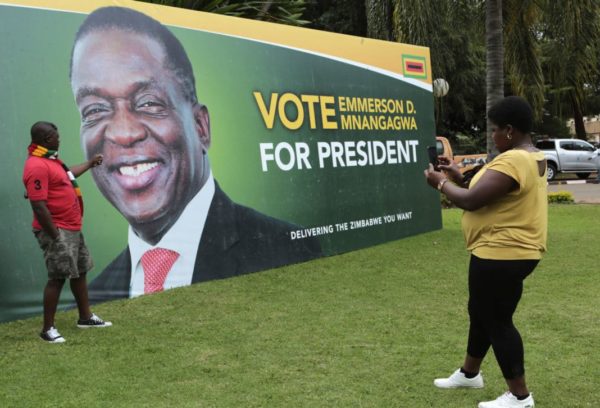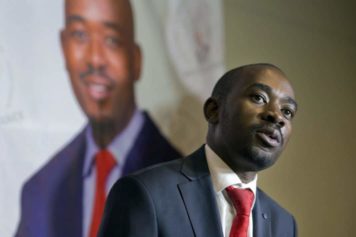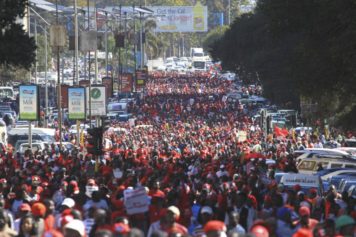
FILE – In this May, 4, 2018 file photo, a man has his picture taken in front of an election campaign poster of Zimbabwe President Emmerson Mnangagwa portrait, in Harare..(AP Photo/Tsvangirayi Mukwazhi, File)
HARARE, Zimbabwe (AP) — Zimbabwe will hold elections on July 30, according to an announcement by President Emmerson Mnangagwa in a government notice.
These will be Zimbabwe’s first-ever elections since independence from white minority rule in 1980 without the participation of Robert Mugabe, who resigned in November amid pressure from the military, his party and the public.
Mnangagwa will be seeking to consolidate his hold on power and that of the ruling ZANU-PF party. The elections will be for president as well as for parliamentary and council seats.
Nelson Chamisa, 40, head of the opposition Movement for Democratic Change, will be Mnangagwa’s main challenger, and there are many smaller parties.
A runoff will be held on Sept. 8 if none of the presidential candidates wins an outright majority, according to Mnangagwa’s proclamation.
Mnangagwa, a longtime ally of Mugabe, has pledged a “free, fair and credible” election. He has invited observers from Western countries for the first time since 2002 as part of efforts to re-engage with the international community after decades of isolation and sanctions.
The European Union signed an agreement earlier this week with Zimbabwe in preparation for deploying election observers nationwide.
Past elections in the economically troubled southern African country have been characterized by allegations of fraud and military-led violence. Mnangagwa has repeatedly said this year’s elections will be different.
So far, opposition parties have been campaigning without the previous threats of violence and arrest.
More than 5 million of Zimbabwe’s 13 million people have registered to vote.
Zimbabweans working and living outside the country will be unable to vote unless they travel back home after a court ruling against postal votes. Millions of Zimbabweans reside outside the country after many fled economic and political problems that beset this once-prosperous country, although there are no official figures of Zimbabweans in the diaspora.

